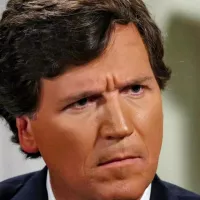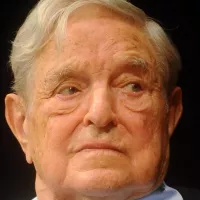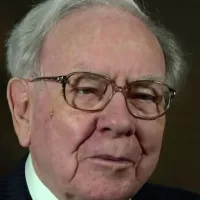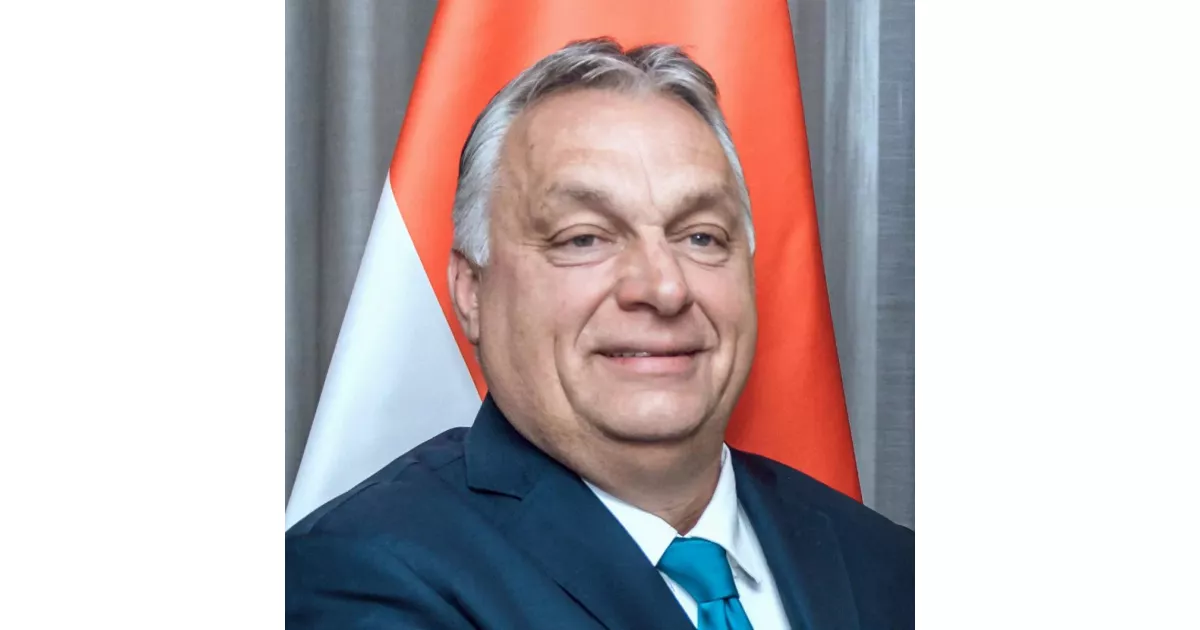Public opinion and media debates around Viktor Orbán—discover key moments of controversy.
Viktor Orbán is a prominent Hungarian politician and lawyer, currently serving as the Prime Minister of Hungary since 2010, a position he also held from 1998 to 2002. He has been the leader of the Fidesz party since 2003, and before that from 1993 to 2000. Orbán secured re-election as prime minister in 2014, 2018, and 2022, solidifying his long-standing influence in Hungarian politics. In November 2020, he became Hungary's longest-serving prime minister.
1998: Bribery Scandal and dispute with Budapest City Council
In 1998, two of Viktor Orbán's state secretaries in the prime minister's office had to resign due to their implication in a bribery scandal involving Lockheed Martin Corporation. The government was also involved in a dispute with Budapest City Council regarding the cancellation of two major urban projects.
1999: Passing of the "status law"
In 1999, Hungary garnered international media attention for passing the "status law" concerning ethnic Hungarian minorities in neighboring countries. The law aimed to provide education, health benefits, and employment rights, addressing the negative effects of the 1920 Trianon Treaty.
2000: Accusations of Anti-Europeanism
In 2000, opposition parties and the left-wing press criticized Orbán for his comment that "there's life outside the EU", interpreting it as anti-European sentiment and sympathy for the radical right.
2001: Political Scandals and Coalition Breakup
Numerous political scandals during 2001 led to a breakup of the coalition that held power in Budapest. A bribery scandal in February triggered allegations and prosecutions against the Independent Smallholders' Party. József Torgyán was ousted from the FKGP presidency and the top post in the Ministry of Agriculture.
2011: Drafting of New Constitution
In 2011, Orbán's government drafted a new constitution behind closed doors, debated it briefly, and passed it on a party line. He amended the constitution twelve times in his first year in office.
2011: Controversial Constitutional Changes
In 2011, under Orbán's leadership, constitutional changes were enacted that were accused of centralizing power, curbing civil liberties, restricting freedom of speech, and weakening the Constitutional Court and judiciary.
January 2012: New Constitution Enters into Force
On 1 January 2012, the new constitution drafted by Orbán's government entered into force, replacing the Hungarian Constitution of 1949.
2012: Interest in Western Prime Contractors
Since 2012 Westinghouse and Areva, two Western prime contractors, had been lured by the Hungarian civil service but eventually had been frozen out of competition by the Orbán government, who chose to sole-source the deal in January 2014.
January 2014: Agreement on Paks II Nuclear Power Plant
On 14 January 2014, Orbán signed an agreement with Vladimir Putin in Moscow for the Paks II nuclear power plant (NPP) to be developed by Rosatom, with Hungary financing it through a loan from Russia.
July 2014: Articulation of Illiberalism Ideology
In July 2014, at Băile Tușnad in Romania, Orbán publicly articulated an ideology of illiberalism, describing the Western 2008 financial crisis as a paradigm shift and outlining his mission to create a competitive Hungarian state.
November 2014: Proposed Internet Tax and Protests
In November 2014, Orbán proposed a controversial "internet tax" amid accusations of corruption, leading to numerous protests against his government, including one in Budapest.
2015: Erection of Hungary–Serbia Barrier
During the 2015 European migrant crisis, Orbán ordered the erection of the Hungary–Serbia barrier to block entry of illegal immigrants and register migrants arriving from Serbia.
2015: Soros Criticizes Orbán's Migrant Crisis Handling
In 2015, George Soros criticized Orbán's approach to the European migrant crisis, contrasting it with his own plan by saying that Orbán treats national borders as the objective and the refugees as an obstacle while Soros' plan treats the protection of refugees as the objective and national borders as the obstacle.
2015: Criticism of Merkel and Migrant Crisis Handling
In 2015, Orbán criticized Angela Merkel's decision to open Germany's borders to migrants. Conversely, he faced accusations of manipulating the 2015 European migrant crisis for political gain, including mistreating migrants in Hungary and encouraging far-right sentiments in Western Europe.
2015: Criticism of EU Immigration Policy
In 2015, Orbán wrote in the Frankfurter Allgemeine Zeitung that "Europe's response is madness" and criticized the European Union's immigration policy. He also demanded an official EU list of "safe countries" for migrant returns.
July 2017: Anti-Soros Billboard Campaign and Controversy
In July 2017, the Israeli ambassador in Hungary, along with Jewish groups, denounced a government-backed billboard campaign against George Soros, likening it to Nazi propaganda. Subsequently, Israel's Ministry of Foreign Affairs issued a clarification denouncing Soros. This occurred before Benjamin Netanyahu's visit to Hungary.
2018: Promotion of Great Replacement Theory
In a 2018 speech, Orbán stated his belief that some people want to end Christian Europe by replacing its cultural subsoil with millions of people from new ethnic groups not rooted in Christian culture.
2018: Speech on Diversity and National Culture
In a 2018 speech, Orbán stated, "We must state that we do not want to be diverse and do not want to be mixed: we do not want our own colour, traditions and national culture to be mixed with those of others. We do not want this. We do not want that at all. We do not want to be a diverse country."
2019: Increased Immigration of Foreign Workers
Despite anti-immigration rhetoric, Hungary increased the immigration of foreign workers into the country as of 2019 to address a labor shortage.
March 2020: Parliament Passes Legislation Creating State of Emergency
On 30 March 2020, the Hungarian parliament voted in favor of passing legislation that would create a state of emergency without a time limit and grant the prime minister the ability to rule by decree.
May 2020: European Court of Justice Ruling Against Migrant Transit Zones
In May 2020, the European Court of Justice ruled against Hungary's policy of migrant transit zones, which Orbán subsequently abolished while also tightening the country's asylum rules.
June 2020: End of State of Emergency and New Law on Medical States of Emergency
On 16 June 2020, the Hungarian parliament passed a bill that ended the state of emergency effective 19 June. On the same day, they passed a new law allowing the government to declare "medical" states of emergencies by decree without parliamentary approval.
July 2020: Comments on Linking EU Funds to Rule-of-Law Criteria
In July 2020, Orbán expressed that he still expects arguments over linking the disbursement of funds of the European Union to rule-of-law criteria but remarked in a state radio interview that they "didn't win the war, we (they) won an important battle".
August 2020: Remarks on Christian Roots and Western Europe
In August 2020, Orbán, speaking at an event commemorating the Treaty of Trianon, said Central European nations should come together to preserve their Christian roots as western Europe experiments with same-sex families, immigration and atheism.
October 2021: Blaming EU Green Deal for Energy Price Surge
In October 2021, Orbán blamed a record-breaking surge in energy prices on the European Commission's Green Deal plans, amidst unfavorable conditions including soaring demand and diminished supply of natural gas.
2021: Transfer of Universities to Foundations Led by Allies
In 2021, the parliament transferred control of 11 state universities to foundations led by allies of Orbán. The Mathias Corvinus Collegium received significant government funds and assets.
2021: Comments on Integrating Bosnia
In a 2021 speech, Orbán said, "The challenge with Bosnia is how to integrate a country with 2 million Muslims." This statement was characterized as "xenophobic and racist" by Bosnian leaders.
May 2022: Promotion of Great Replacement Theory
In May 2022, Viktor Orbán promoted the Great Replacement conspiracy theory during a speech.
July 2022: Controversial Speech at Bálványos Summer University
In July 2022, Orbán delivered a speech at the Bálványos Free Summer University, expressing views on migration and race that were widely criticized. Zsuzsa Hegedűs, his senior advisor, resigned in protest, describing the speech as resembling "a pure Nazi text". Orbán later clarified his remarks in Vienna, focusing on cultures rather than race.
July 2022: Remarks on Race Mixing
In July 2022, Viktor Orbán, echoing Jean Raspail, spoke against the "mixing" of European and non-European races in Romania. He clarified two days later in Vienna that he was referring to cultures, not race.
2022: Accusations of Antisemitism
In 2022, Orbán faced condemnation from the International Auschwitz Committee for comments perceived as discriminatory towards non-Europeans. Critics accused him of antisemitism, while supporters pointed to his establishment of Holocaust memorials as evidence to the contrary.
2023: Criticism of EU's New Pact on Migration and Asylum
In 2023, Viktor Orbán criticized the EU's New Pact on Migration and Asylum, stating that "Unity is dead, secure borders are no more."
2024: Warnings about Immigration to Europe
In 2024, Viktor Orbán warned that immigration to Europe would disintegrate the European Union, calling it an "existential issue" and blaming the European Commission and the European Parliament for the situation. He also mentioned that Hungary was ready to file a lawsuit against the von der Leyen Commission over immigration policies.
April 2025: Visit of Benjamin Netanyahu and Withdrawal from ICC
In April 2025, Israeli Prime Minister Benjamin Netanyahu visited Budapest, leading the Hungarian government of Orbán to announce Hungary would withdraw from the International Criminal Court (ICC), describing it as "politically biased".
Mentioned in this timeline

Donald John Trump is an American politician media personality and...

Vladimir Vladimirovich Putin is a Russian politician and former intelligence...

Tucker Carlson is an American conservative political commentator known for...

George Soros is a Hungarian-American investor and philanthropist with a...
Ukraine is a large country in Eastern Europe second in...

Martial law is the imposition of military rule in place...
Trending
2 months ago Dylan Raiola Transfer Rumors Surface; Brother Decommits from Nebraska, Future Uncertain

8 months ago Sheinelle Jones' Husband, Uche Ojeh, Passes Away at 45 After Cancer Battle
3 months ago Kelly Services Recognized for Leadership in Staffing and Hiring Solutions in 2025 Rankings
2 months ago Brandon Lake Makes History as First Christian Artist on Amazon's SongLine.

9 months ago Warren Buffett's Investing Genius and Market Crash Strategy Revealed Again: A Timeless Advantage

9 months ago Maury Povich reflects on media; Connie Chung honored and encouraged to write memoir.
Popular

Carson Beck is an American college football quarterback currently playing...
Curt Cignetti is an American college football coach currently the...

XXXTentacion born Jahseh Dwayne Ricardo Onfroy was a controversial yet...
WWE Raw a professional wrestling television program by WWE airs...

Stranger Things created by the Duffer Brothers is a popular...

Kristi Noem is an American politician who has served as...
